Double Dealing Qatar, a Feckless U.N., & Western Decay - Then comes the 20-Point Peace Plan
September 30, 2025 - Issue #86
Finally, there is reason for hope.
Hope the war will soon end. Hope for imminent return of the hostages. Hope for the end of Gazan suffering.
I did not think so two days ago. For the first twenty-eight days of September, I thought Jihadi Islamists were winning. Not on the ground but in the war of words and pictures. As a result, I thought Jews everywhere were endangered and Israel faced a difficult diplomatic future.
But now, there is a glimmer of hope. Not so much in the details of the twenty-point plan President Trump presented yesterday, but in the explicit acceptance of it by Israel and the implicit or actual acceptance of it by much of the Arab and Muslim world. I will get to that at the end of this essay.
What was going wrong and what now might be going right? To answer those questions, we need to understand the negative impact of critical players and recognize their machinations for what they are.
Let’s start with the bad.
First, a bloated United Nations, filled with biased operatives, consistently facilitates Hamas’ terrorist agendas. Second, Qatar, a nation with immense wealth and a wealthy patron of the Muslim Brotherhood and Hamas, has skillfully co-opted governments, education systems, and the information space, especially in America—through targeted donations, thinly disguised bribes, and creation of Al Jazeera—to allow it to promote an agenda hostile to Israel and the Western world. Third, many western nations, pushed by their rising Muslim populations and/or their constituents’ antisemitism, pressure Israel because they easily can and receive political benefits for doing so rather than pressure Hamas as they should even though it might require political courage.
The synergistic impact of these three forces—an international organization that drapes itself with a false veneer of morality, a country that fuels hatred and fallacies with its money, and feckless nations led by spineless or turned leaders too afraid of their vocal minorities or too enamored with their pompous pronouncements—brought us to a critical moment. A moment where Israel is vilified, Gazans suffer, and Jews worldwide are targeted.
These forces infest institutions, pollute minds, and twist geopolitics to the extent that “cause” no longer matters, only “effect.” In this environment, good is smeared while evil is whitewashed. Meanwhile, those who think they are helping by pressuring Israel rather than consistently and unilaterally condemning Hamas only serve to help those doing bad. While this has been happening since October 7, 2023, at no time did it become more obvious and more starkly clear than in the events of September 2025, when:
The United Nations campaign to argue famine in Gaza and Israel’s genocide intent went into its highest gear yet.
Qatar brazenly continued to shelter Hamas’ leadership in five-star hotels while vilifying Israel after Israel launched a precise air strike on Qatari soil to kill Hamas’ leaders sheltering in luxury there in hopes of ending the logjam of Qatari biased mediation combined with Hamas’ brazen intransigence.
Much of the Western World, including France and England recognized a Palestinian State in return for Palestinian promises naked of any concrete deliveries.
As a result, Hamas remains intransigent, the hostages still suffer, and the Gazan people endure more war and dislocation.
Let’s dive in.
The United Nations
On September 16, 2025, with much pomp and ceremony, the so-called United Nations “Independent International Commission of Inquiry on the occupied Palestinian territory,” created at the request of the so called Human Rights Council, released its long-expected report. With much fanfare and media coverage, it charged Israel with committing genocide. It did so to no surprise of anybody given the Human Rights Council’s long history of vilifying Israel on a regular basis while neglecting serial rights abusers throughout the world (now on the Council are such paragons of virtue as China, Cuba, Qatar, and Sudan)
Still, accusing a nation of committing genocide is a serious thing and should require rigorous analysis. Accusing a nation of it wrongly cheapens understanding of the term and condemnation of the massacres inflicted on the Tutsi’s when 500,000-800,000 were butchered in Rwanda and the almost two million innocents killed in Cambodia by the Kymer Rouge. Or, for that matter, Hitler’s extermination of six million Jews which was the event that drove development of the word “genocide.” Note too that in all three of these clear cases of genocide, the maniacs in charge ordered the death of their own citizens or, in the case of Germany, extermination of a populace that for the most part either was within its country or that were residents of countries Germany had already conquered. In other words, killing a population in its physical not theoretical control.
But you might say, Gaza is a different type of war. And you would be correct in saying so. However, in Gaza, the IDF is engaged in an unprecedented battle with a terrorist army hiding in hundreds of miles of tunnels and thousands of civilian structures. And since a finding of genocide requires:
Determining that there is a specific intent by the leader (not idiot members of government) “to destroy in whole or in part, a protected group,” and
That there is “no other reasonable inference,”
One would think that would at least require an extensive analysis of Hamas’ actions and the war as a whole—especially:
That the IDF is engaged with a 30,000-strong fighting force on a battlefield fortified by Hamas with hundreds of miles of tunnels with thousands of exits.
The impact of the hostages Hamas took and still refuses to release.
The rapes and murders Hamas inflicted on Israelis on the morning of the seventh
No wonder then, that Israel insists that Hamas must not be left to govern Gaza or remain equipped with arms. But that issue is not addressed. But, in the entire 72-page report, comprising more than 20,000 words, there is nary a reference to any of that countervailing information. In that report, is as if one day Israel woke up and decided to bomb Gaza. No mention of October 7, no mention of the tunnels, no mention that Hamas uses homes, hospitals and schools as fortifications—in part to protect its personnel and in part as a calculated strategy to ensure that innocents will die.
Nor did the Commission apply any academic rigor to the self-serving statements issued by Hamas’ Health Ministry about civilian casualties, which even if true, did not place the civilian toll out of balance with other urban conflicts, such as America’s and Iraq’s efforts to roust ISIS from Mosul, which were less difficult than the one the IDF finds itself fighting. And finally, there is no discussion of the vast lengths the IDF goes to prevent civilian casualties.
Instead, the Commission’s report is a perfect example of a pre-determined conclusion that is then buttressed by selective facts used to build specious arguments. This wasn’t a matter of just taking things out of context. More so it was a matter of making things up out of whole cloth.
As was also the case with a report issued by the Integrated Food Security Phase Classification (IPC) in August 2025 alleging famine in Gaza that was rebutted footnote by footnote in a report published by Israel a few days later, titled “Politics Disguised as Science: Systematic distortions in the IPC’s Gaza report of August 25.”
Nor should we ignore the laughable allegation in a September 1 report issued by the International Association of Genocide Scholars (IAGS) that declared “an overwhelming majority of its members” found that Israel is committing genocide in Gaza. That made the headlines but what didn’t was that:
It was not an overwhelming majority, only 28% of the members voted.
It only cost $30.00 to join the organization and 13% of the members hailed from Iraq.
One did not have to submit credentials to join.
Not surprisingly, five members of an Iraqi family with the same last name are members. Are all of them scholars or were they part of an orchestrated information war plot?
The purported poll was not based on any scholarly research.
So, shame on the United Nations for promulgating a lie on top of two other explosive fictions earlier in the month that it knew would garner world attention but was much more designed for political theatrics rather than to be a worthy, objective, principle based, social science study.
QATAR
On September 9, 2025, twelve Israeli fighter jets flew over the Red Sea, between Egypt and Saudi Arabia. Some were escorts and some carried a unique Israeli missile designed to hit ground targets with great accuracy. After traveling hundreds of miles, the pilots in planes carrying the specialized missiles launched them. They were ballistic missiles—designed to go high into the stratosphere or even into space before coming down onto their target. Israel used them because they could fly so high that there could be no legitimate accusation that Israel violated Saudi airspace. About twenty minutes later they crashed into the second floor of an apartment building in Doha, the capitol of Qatar. That floor was devastated as was right side of the ground floor. No other damage was done.
Planning for the operation had been ongoing for a month and coordinated in some form with the United States. Israel hoped to kill Hamas’ top leaders outside of Gaza, including the acting head of Hamas, Khalil AL-Hayya and head of finances, Zaher Jabarin. They, along with the Qataris, have been a roadblock in the hostage release negotiations. Unfortunately, it appears those leaders survived the attack because they had gathered in a different room than the one targeted. Fortunately, however, the attack has served to cast a bright light on Qatar’s perfidy and propriety as a mediator between Israel and Hamas.
In the aftermath, various governments expressed shock, representatives of various of Arab nations gathered in Doha to express their outrage, and a UN Security Council Resolution condemned the attack although it did not mention Israel. Meanwhile, even though American special forces flew into Pakistan without that nation’s permission years ago to kill Osama Bin Laden, commentators now spoke of Israel’s international law violation and warned that Israel had undermined Qatar’s sovereignty and threatened stability in the region. However, no Arab nation withdrew from the Abraham Accords and a few days ago when a passenger plane with eighty Israelis made an emergency landing in Saudi Arabia because one of them was sick, the Saudis took the ill passenger to a hospital and allowed the plane to leave without incident. In other words—business has continued as usual because, in truth, most everyone in the region does not like Qatar. Understanding why that is, is important for understanding why Israel’s strike was not so brazen, and even though it failed to achieve its primary goal, was beneficial for making Qatar realize that playing a double game is dangerous.
A Little Background About Qatar
Qatar is a tiny nation composed of 330,000 citizens and almost ten times that number of foreign citizens employed as migrant construction and domestic workers. Many of them endure harsh and dangerous work conditions while subjected to discrimination and various human rights abuses—especially women and LGBTI people. Wage theft is endemic as are restrictions on worker rights to travel and although Qatar changed its laws a few years ago to prevent what was in effect a modern form of slavery, many question how widespread their impact has been.
Qatar’s leader is an autocratic Emir who took office by virtue of his heredity. And while there is a constitution, Qatar’s laws are based on Sharia—in other words Islamic law derived from the Prophet Muhammed.
Today, Qatar is awash in money. As such, even though it has a tiny population and a miniscule land mass, it is a financial powerhouse due to its oil deposits and its especially vast natural gas field. That has translated into Qatar exporting an average of $100 billion dollars of gas and oil a year which has led to a Qatari sovereign wealth fund for investment, and procuring influence, of $600 billion dollars.
Qatar is a Jihadi Nation that Plays a Double Game
In the 1960’s, Qatar only had 25,000 citizens and minimal governmental structures. Muslim Brotherhood adherents from Egypt filled the gap and then played a crucial role in developing Qatar’s Ministry of Education and establishing the primacy of Islamism within Qatar. That is concerning given the Brotherhood’s founding slogan:
“Allah is our objective. The Prophet is our leader. The Qur’an is our law. Jihad is our way. Dying in the way of Allah is our highest hope.”
Since then, the Muslim Brotherhood, aided by financing from Qatar, has advocated for Israel’s destruction and inspired the worst of the worst Sunni Islamic terror groups, including ISIS, al Qaeda, and Hamas.
During this time, Qatar has acted in lockstep with the Muslim Brotherhood’s goals. As part of its efforts on behalf of Islamic extremism, Qatar provided financing to Hamas and for more than a decade, and continuing after October 7, Qatar has permitted Hamas’ political leadership to live within the country without restriction in grand five-star hotels and homes.
Qatar also started Al Jazeera and continues to provide funding for it. Ostensibly a news company, it is really a mouthpiece for furthering Qatar’s Jihadi agenda. After 9/11, Al Jazeera exclusively published al-Qaeda’s messages. In other Arab countries, Al Jazeera plays a critical role in swaying public opinion. And in Gaza, Al Jazeera is Hamas’ primary outlet for disseminating its propaganda and Hamas has great control over Al Jazeera’s reporters, some of which are members of the terrorist organization.
Qatar’s and Al Jazeera’s alleged ties became so concerning to many Arab countries that Jordan, Egypt and Bahrain accused Qatar of promoting terrorism and unrest in their countries. In addition, Saudi Arabia, the UAE and Egypt severed relations with Qatar from 2017 to 2021 and imposed a political and economic boycott on it during those four years because Qatar’s ties with terrorist entities and Al Jazeera programming threatened their homelands.
Meanwhile, recognizing its precarious position in the region, Qatar has actively sought to buy security and support from the West. In 1996, after spending one billion dollars, Qatar finished construction of Al Udeid Air Base and then turned it over to the United States for America’s use. Since then, it has reportedly spent another seven billion on the base. However, while the base has the virtue of being a gift, it would be relatively useless in a war with Iran because Iranian military assets are so close that any American planes and personnel at the base would likely be destroyed by Iran before they could react. Also, in 2017, the Emir signed an agreement with President Trump that Qatar would cease supporting terrorists and join in the fight against them. It was a promise perhaps kept in part, perhaps not at all. Nevertheless, the United States started what it called a “strategic dialogue” with Qatar in 2018, and President Biden declared Qatar a “major non-NATO ally” and entered a strategic alliance with it in 2022.
Also, Qatar has been busy spending nearly $100 billion dollars on American K-12 schools, Universities (giving more than six billion to colleges which is more than any other foreign donor and that has given rise to Middle East studies departments that are centers of antisemitism and anti-Western hatred), newsrooms, thinktanks, and lobbyists. This is not being done out of the goodness of Qatar’s heart. It is to buy influence and protection. In addition, Qatar has made billions of dollars of targeted investments and purchases in the United States, much of which is targeted to curry political favor. Qatar also has successfully established centers within its country for use by major press organizations, universities, and to educate K-12 teachers who travel there from the United States. that gives the Qataris an exquisite opportunity to influence how the news is portrayed and the education of future leaders in America. And, in a story revealed by numerous news outlets last month, Qatar has funded films from Mira Nair, the mother of Zohran Mamdani, now running for Mayor of New York.
Then, in early 2025, came a most egregious and obvious bribe. Qatar gave the U.S. a $400 million dollar plane for use as Air Force One until the Trump presidency ends, when it is scheduled for transfer to a future Donald Trump library. There could be no plainer (pardon the pun) attempt to buy influence than that,
Qatar’s Illegitimate Safe Haven
In 2001, after Al Qaeda attacked American, the United Nations passed Security Council Resolution 1373 that required all UN members to:
Suppress terrorist financing, freeze financial assets of people who “participate in or facilitate the commission of terrorist acts,” and
“Deny safe haven to those who finance, plan, support, or commit terrorist acts, or provide safe havens.”
Qatar has given lip service to Resolution 1373, cooperating at times and flagrantly violating it at other times by providing terrorist financing to Hamas and providing sanctuary for Hamas’ political wing.
So, no surprise that Israel is not so enamored with Qatar and did not feel constrained to attempt to kill its enemies hiding on Qatari soil.
Western Decay
There are so many examples of the decay of western civilization, but taking the cake in September were the egregious do-gooders in the governments of France, England, Canada, Australia, and many more nations when they announced at the United Nations that they were recognizing a Palestinian State without any pre-conditions. What stupid things were those countries thinking? Forgetting for a moment that they were rewarding Hamas for October 7 as proven by Hamas’ public rejoicing at the news, in what way would recognizing a state of Palestine end the war or obtain release of the hostages? And what would the boundaries of that state be? And would it be militarized? Would it remain radicalized? Would it have control of its borders so that it can bring weapons in that would then threaten the length and breadth of Israel? In short, how would it not be an existential threat to Israel absent massive Palestinian change? But they didn’t care.
And, for those reading this newsletter that oppose Israel’s actions in Gaza or that would do anything to see the war stop, do you really think that putting pressure on Israel by recognizing a Palestinian state will end the fighting and result in Hamas happily give up all the hostages soon?
I think not. And there is no proof or even reasoned thought to suggest otherwise.
Nor is such pressure well received in Israel. Very few Israelis, still traumatized from October 7, would for a moment accept a new terror state on its borders. All the misplaced morality of these nations did was succeed in uniting Israel’s political left and right against the very idea of another terrorist Palestinian enclave on its borders.
No. Pressuring Israel is a dead end. It will not stop the IDF, but it does send a message of hope to Hamas that if they just hold on a little longer, they will get what they want—survival in Gaza. As such, all these supposed do-gooder nations achieved by their grandiose announcements is more suffering and more death and certainly not a state for the Palestinians.
Twenty-Point Peace Plan
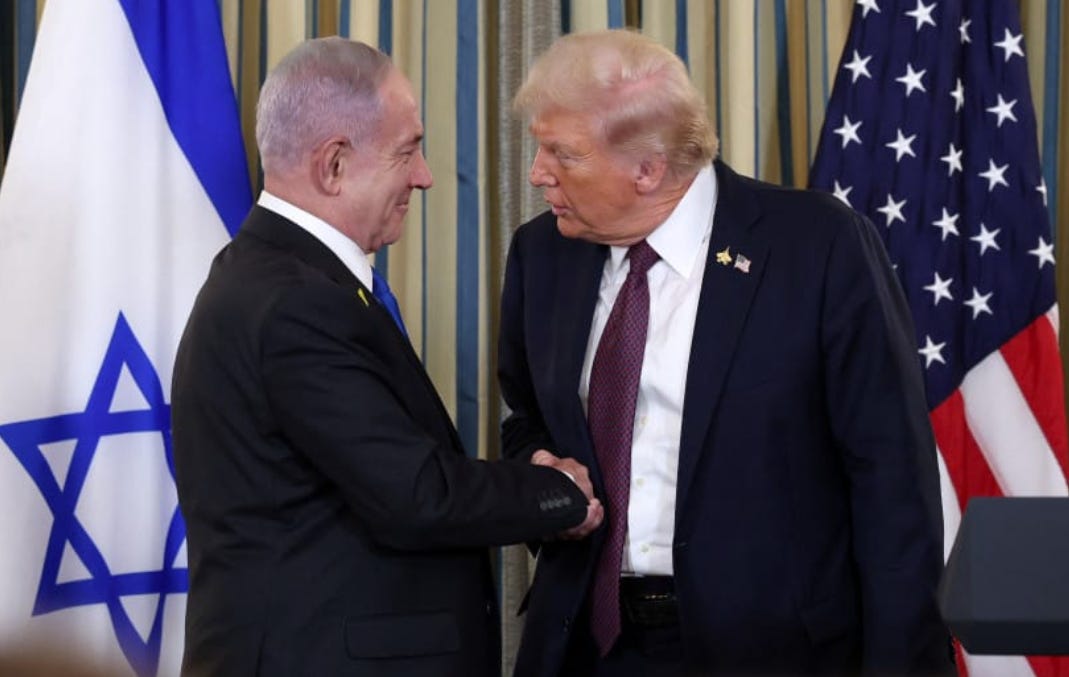
Now, for some good news.
On September 29, came the Trump 20-point peace plan that I hope will replace the fetid air the hostages now breathe with the fresh air of freedom. Finally comes clarity and resolve—the realization that ending the war requires ending Hamas’s control of Gaza forever. And that the way to do that is to present a non-negotiable international plan that ends the war, ends Hamas as a military or governing entity, and makes clear that if Hamas does not agree Israel has the green light do what it must. It is a plan seemingly supported to at least some degree by much of the Arab and Muslim world. It is a plan that those who so recently cravenly recognized a Palestinian state should have promulgated long ago but now have a chance to climb on board to good effect. And it is a day after plan that offers hope and opportunity for Gazans.
Nitpickers will find plenty to question in the plan. I do too. And many of its broad declarations lack details. But the beauty of the 20-point plan is that for the first time it has been made clear in an international document with an apparent broad consensus that the Palestinians need to de-radicalize, demilitarize, and earn the right to some form of statehood rather than just be granted it in return for empty promises. Even if Hamas rejects the proposal, progress has been made.
Below I have reorganized and distilled the 20-point plan for clarity:
Ending the Fighting
If both Israel and Hamas agree to the proposal, the war will immediately end, including all military operations of any kind and Israel will withdraw to an agreed upon line. Hamas must return to Israel all live and deceased hostages within 72 hours of Israel publicly agreeing to the 20-point plan (which it did on September 29). After Hamas releases all the hostages, Israel will free 250 Palestinian security prisoners serving life sentences, 1,700 Gazans arrested (including all women and children detained in that context) since October 7, 2023, and the bodies of 15 Palestinians for every returned Israeli deceased hostage body.
After all Israeli hostages are returned, Hamas members that commit to peaceful coexistence and that decommission (give up?) their weapons will receive amnesty and those that wish to leave Gaza will be given safe passage to receiving countries.
Gaza will then become a deradicalized terror-free zone that does not pose a threat to its neighbors.
The IDF will gradually hand over areas it controls to an international stabilization force as outlined below.
If Hamas delays or rejects this plan, the components of this proposal will proceed in areas that the IDF now controls.
Humanitarian Aid
Once this deal is agreed to by Hamas (presumably in whole or in areas the IDF now controls if Hamas does not agree), aid will surge into Gaza to a level at least as high as contemplated in the January 2025 hostage deal (about 600 truckloads per day), plus equipment will enter Gaza for removing rubble and rehabilitation of critical infrastructure including roads, water, electricity and sewage.
Neither Israel nor Hamas will interfere with distribution of aid by the U.N., the Red Crescent, or any other international organizations (not clear if that includes the Gaza Humanitarian Foundation). The Rafah crossing will be opened in both directions as contemplated in the January 19, 2025, agreement.
Governing Gaza
Temporarily, a transitional government of apolitical Palestinian technocrats and international experts will have responsibility for day-day services in Gaza. However, this entity will be supervised by an international body called the Board of Peace (BOP) chaired by President Trump and that includes former British Prime Minister Tony Blair and other heads of State to be announced.
The BOP is also charged with using best international standards and with implementing modern and efficient governance that will serve Gazans and attract investment.
Hamas may not have any role in Gaza governance and must agree to this.
Before establishing new leadership, Gaza’s new leaders must commit to peaceful coexistence with neighboring countries and must destroy and agree to no longer build offensive military infrastructure, such as tunnels. Independent monitors will supervise this process and support decommissioning and international buyback of weapons in Gaza.
Security
Regional partners will ensure that Hamas and other Gaza factions comply with their obligations and that nothing from Gaza will pose a threat to Israel or the Gazan people. To accomplish that, the U.S. will work with Arab and other international partners to create a temporary stabilization force that will immediately deploy in Gaza (this clearly means no U.N.).
The stabilization force will develop and train, in consultation with Jordan and Egypt, a Palestinian police force that will then replace the stabilization force internally and secure border areas abutting Egypt and Israel. As part of that, the agreement explicitly states that munitions must be prevented from entering Gaza.
Israel will not occupy or annex Gaza and will gradually hand over territory it now
occupies, other than a security perimeter, at a pace all parties agree takes into account the stabilization force’s progress establishing control and stability in Gaza.
Development in Gaza
The BOP is charged with structuring and handling funding for redevelopment of Gaza until the Palestinian Authority has completed (I added the emphasis) a reform program that includes de-radicalization of Palestinians and the ability to secure control of Gaza.
In furtherance of that, an economic plan is to be created by a panel of experts experienced in constructing modern Middle East cities that will attract investments and create jobs, opportunities, and hope for Gazans.
Present citizens will be encouraged to stay in Gaza, nobody will be forced to leave, but those that do will be allowed to return.
Creation of an economic zone for Gaza that enjoys reduced tariffs negotiated with participating nations.
Miscellaneous
Also mentioned at the press conference with Trump and Netanyahu is creation of a trilateral commission composed of the United States, Israel and Qatar to resolve grievances.
Deleted from what was once a twenty-one-point plan is a commitment by Israel not to carry out any future strikes in Qatar and the U.S. and an acknowledgement of Qatar’s important mediating role in the Gaza conflict. Nevertheless, Netanyahu called Qatar to explain that the missiles fired by Israeli jets were not an attack on Qatar and to apologize for the loss of one Qatari citizen’s life. Likely, Israel will provide compensation to the deceased’s family.
After the Palestinian Authority reform program has been implemented, conditions might be ready to establish a “Credible pathway to Palestinian statehood” that signatories to the agreement recognized as the aspiration of the Palestinian people.
The U.S. will establish a dialogue between Israel and Palestinians regarding agreement on a political horizon (whatever that means) for peaceful coexistence.
A process that includes an interfaith dialogue in Israel and Gaza will be created aimed at changing mindsets and narratives that emphasizes the benefits of peace.
Nowhere in the deal is UNWRA mentioned. Nor is there call for any U.N. involvement other than for the distribution of aid.
In Conclusion
For the first time in a long time, I sense an opportunity for peace in the Middle East. Hezbollah is a mere shadow if its former self; Iran’s nuclear aspirations have been significantly setback, and Iran now must contend with the snapback sanctions; and Hamas is on its last legs. But most importantly, major players in the world—especially among Arab and Muslim states—have signed on in whole or in part to a day after plan that eliminates Hamas as a player and puts responsibility where it should be—on the Palestinian people—for them to do what is necessary to earn self-governance.
As for Israel, it receives an agreement that if it succeeds will accomplish its three remaining core objectives:
Return of all the remaining hostages;
An end to Hamas rule and control of Gaza; and
No Palestinian Authority governance (at least for some longtime to come)
In addition, the agreement contains clear reference to Palestinian need to reform before it receives any further progress towards self-governance. In other words, the burden is now on the Palestinians and the Arab and Muslim world recognizes that fact.
In return, the agreement states clearly that Israel will not retain control of Gaza other than a security perimeter for an indeterminate amount of time and that there is a path for Palestinian self-rule but it must be earned.
Am I optimistic? No. Nobody should ever be optimistic about peace in the Middle East. And there are plenty of grounds to be pessimistic because anyone who has listened to CNN’s Jeremey Diamond’s recent interview of Hamas leader in Qatar, Ghazi Hamad, understands that Hamas feels no regret about the death of its citizenry and will not knuckle under easily. Therefore, even if they agree to abide by the agreement, they will make huge efforts to assert themselves in the future. Nor do I trust Qatar or America’s relationship with Qatar except just maybe:
With Israel’s strike against Hamas in Doha and the promise that Israel will not strike in Qatar again being stripped from the deal, perhaps Qatar now feels pressure to deliver Hamas; and
President Trump more likes the taste of the Nobel Peace Prize he covets than the goodies Qatar delivers.
We might also see what Bret McGurk, who negotiated with Hamas under President Biden, warns about, that Hamas might not respond to offers so quickly as was twice the case in 2024 when once Hamas took five weeks, and another time never responded to a ceasefire offer supported by Qatar and Egypt.
But I am hopeful—not just for Israel but for Jews in the diaspora because actions matter and for the first time it is not Israel being pressured—it is Hamas and the Palestinian Authority. Both are being required to take concrete actions not just make agreements for future deliverables. That should relieve international pressure on Israel and take some of the bite off Jews walking the streets worldwide. And, should Hamas remain intransigent, Israel now has a clear American greenlight to do what it has to do.
As such, the 20-point plan is a new beginning, and I feel very good—and hopeful—about that.
We will see.
A Special Request
If you think this article of value, please share it with others. Please also consider indicating if you see value in the article by “liking” it or adding a comment. Doing so helps me determine the subject of future articles that you might find beneficial and, through social media, broadcasts my work to a wider audience.
Qatar is an Ally of Iran—Written by Dr. Yossi Mansharof for the Alma Research and Education Center—September 18, 2025
IDF Launches ‘Main Phase’ of Gaza City Operation—Written by Yaakov Lappin for Jewish News Syndicate—September 16, 2025
The Main Battle for Gaza City has Begun—Written by Yaakov Lappin for The Lappin Assessment—September 16, 2025 (A Patreon site I strongly recommend subscribing to.)
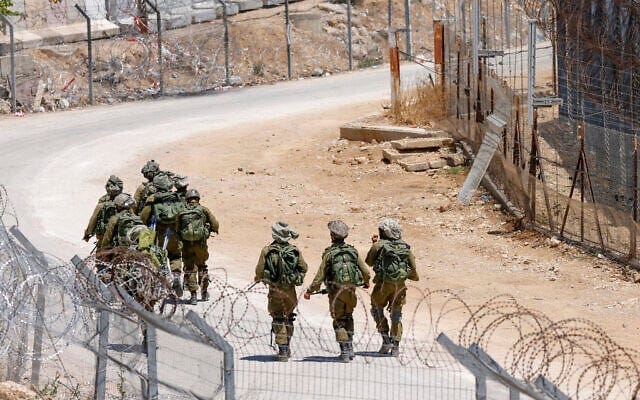
Israel Presented Syria with Detailed Proposal for New Security Agreement – Report—Written by Lazar Berman for Times of Israel—September 17, 2025
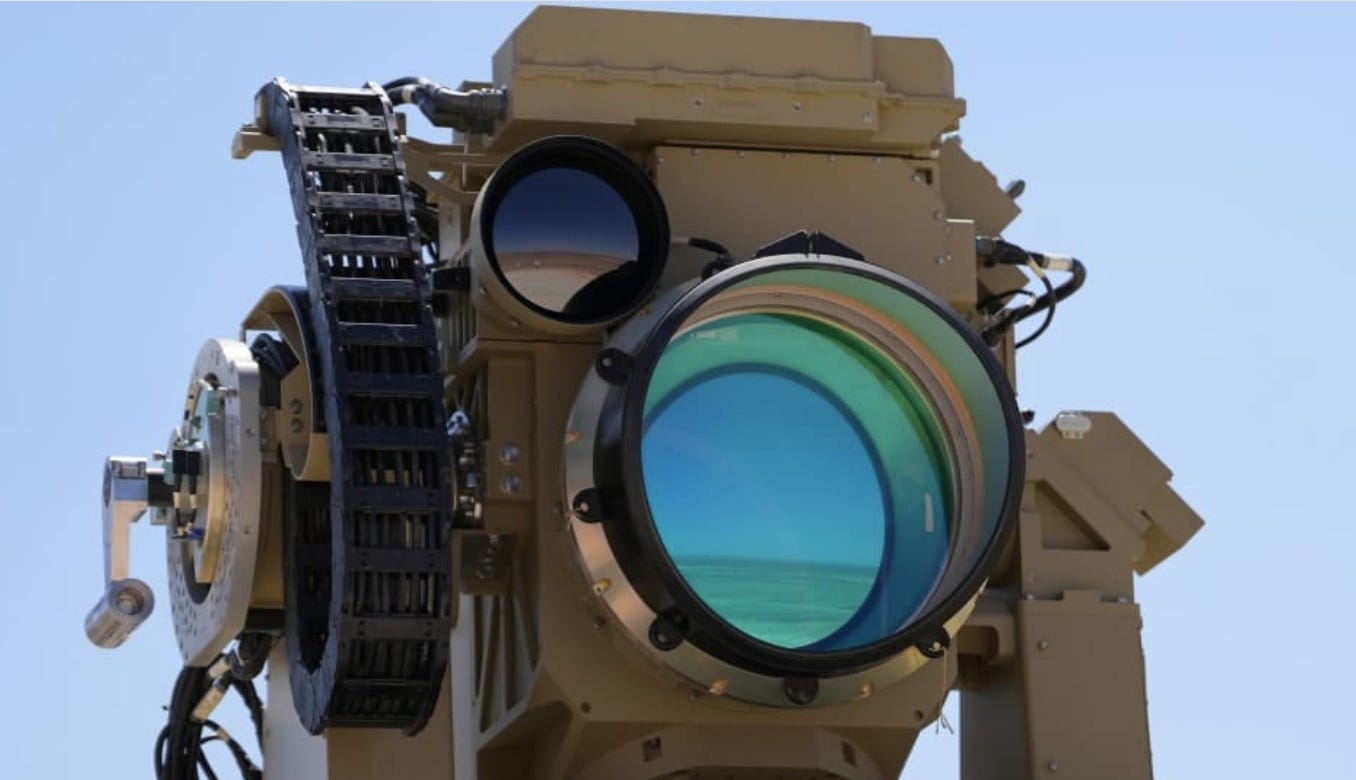
Israel's 'Iron Beam' Fully Operational to Hit Missiles Along With Drones—Written by Yonah Jeremy Bob for The Jerusalem Post—September 17, 2025
Elbit on Path to Next Stage in Laser Military Technology: Air Force Lasers—Written by Yonah Jeremy Bob for The Jerusalem Post—September 17, 2025
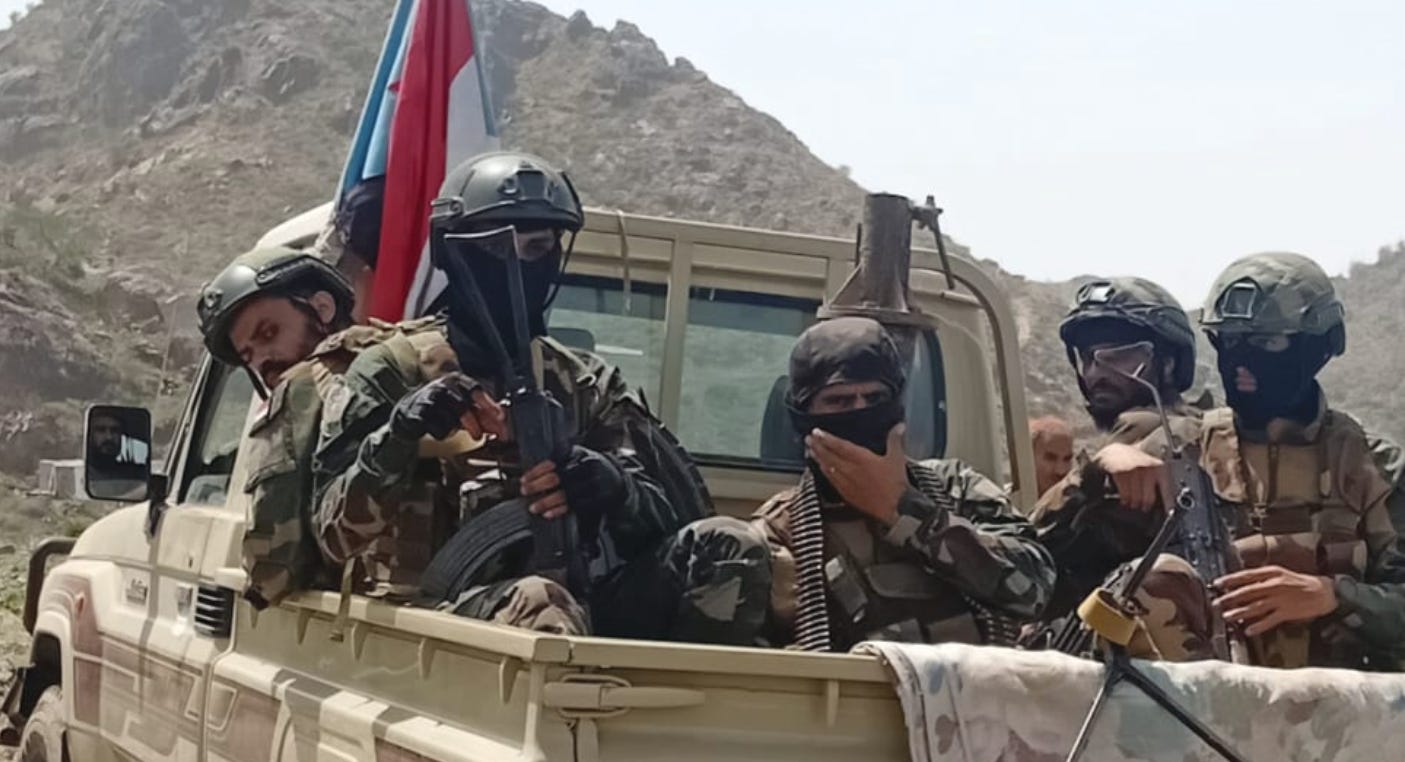
Inside Yemen’s Endless War: Frontlines, Houthis, and the Battle for Bab el-Mandeb—Written by Jonathan Spyer for the Jerusalem Post—September 12, 2025
The IDF’s Learning Curve Following October 7 and Its Global Implications—Written by Yaakov Lappin for The Jerusalem Institute for Strategy and Security—September 8, 2025
Humanitarian Aid in Gaza: IDF Efforts & Next Steps—written by LTC Nadav Shoshani for Mission Brief (Official IDF Substack)—September 7, 2025
Every Time the Arabs Try to Isolate Israel, it Backfires.—Written by Joshua Hoffman for Future of Jewish—September 16, 2025
Closer to Damascus: New Revelations From the IDF's Special Operation in Syria—Written by Yoav Zitun for YNet Global—September 13, 2025
Armed Gaza Clans Turn on Hamas as IDF Advances Deeper into Gaza City—Written by Amir Bohbot for The Jerusalem Post—September 17, 2025

Israel’s War Against Hypocrisy—Written by Joshua Hoffman for Future of Jewish—September 15, 2025
Dozens of Mossad Women Penetrated Iran During 12-Day War- Exclusive—Written by Yonah Jeremy Bob for The Jerusalem Post—September 17, 2025
Israel’s Struggle with Hezbollah—A War Without End is now available in eBook and hardback format on Amazon and IngramSpark. This compelling narrative explores Hezbollah’s origins and cancerous growth, traces Israel’s response, and reveals Israel’s present readiness to meet Hezbollah’s challenge.
Cliff Sobin
Important Link—Alma Research and Education Center: Understanding the Security Challenges on Israel’s Northern Border

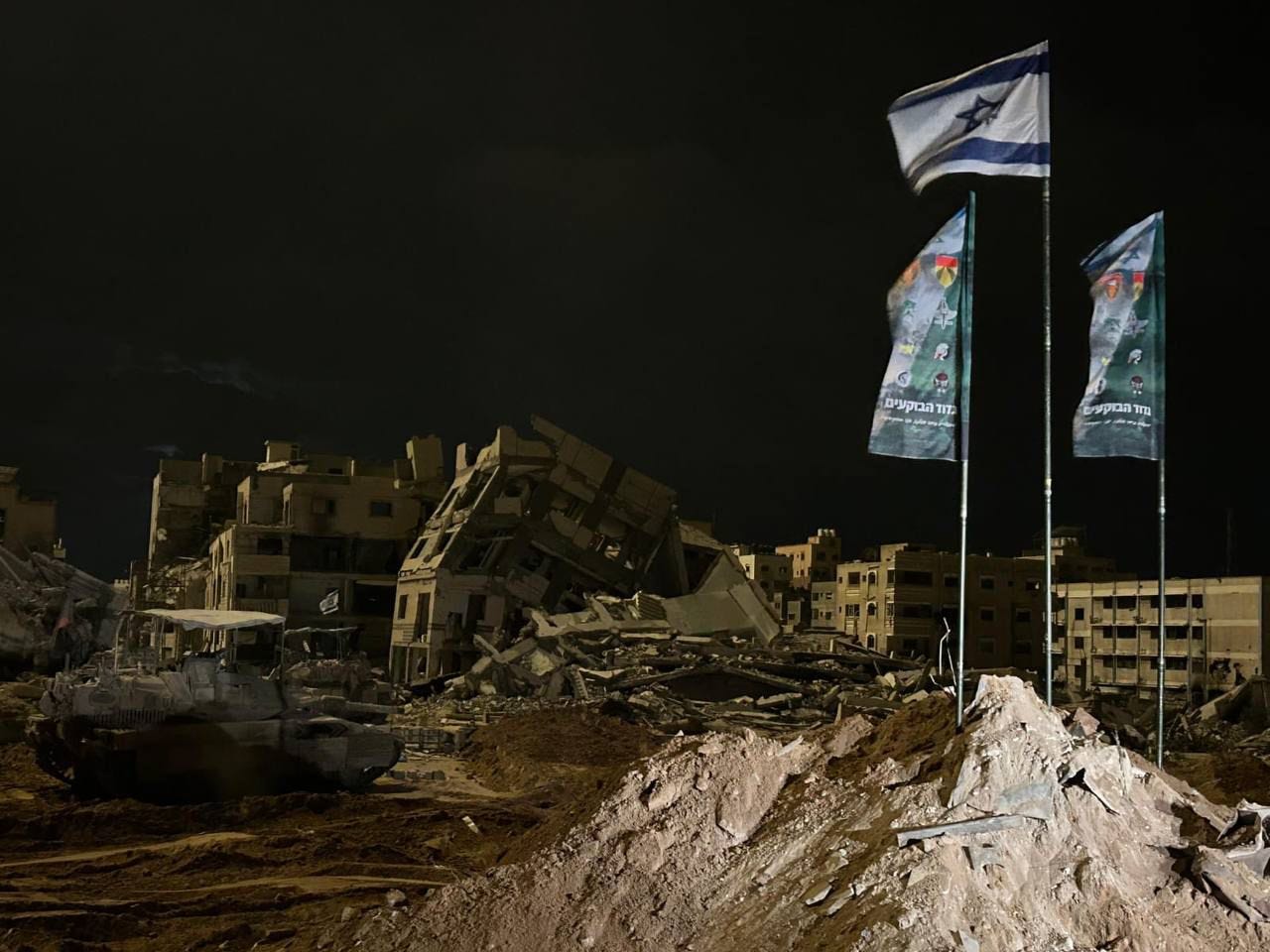
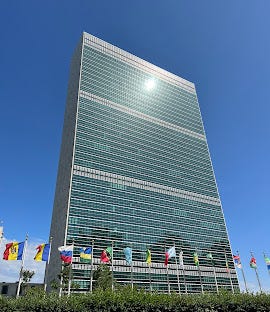
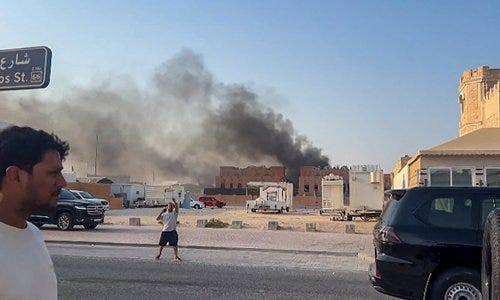

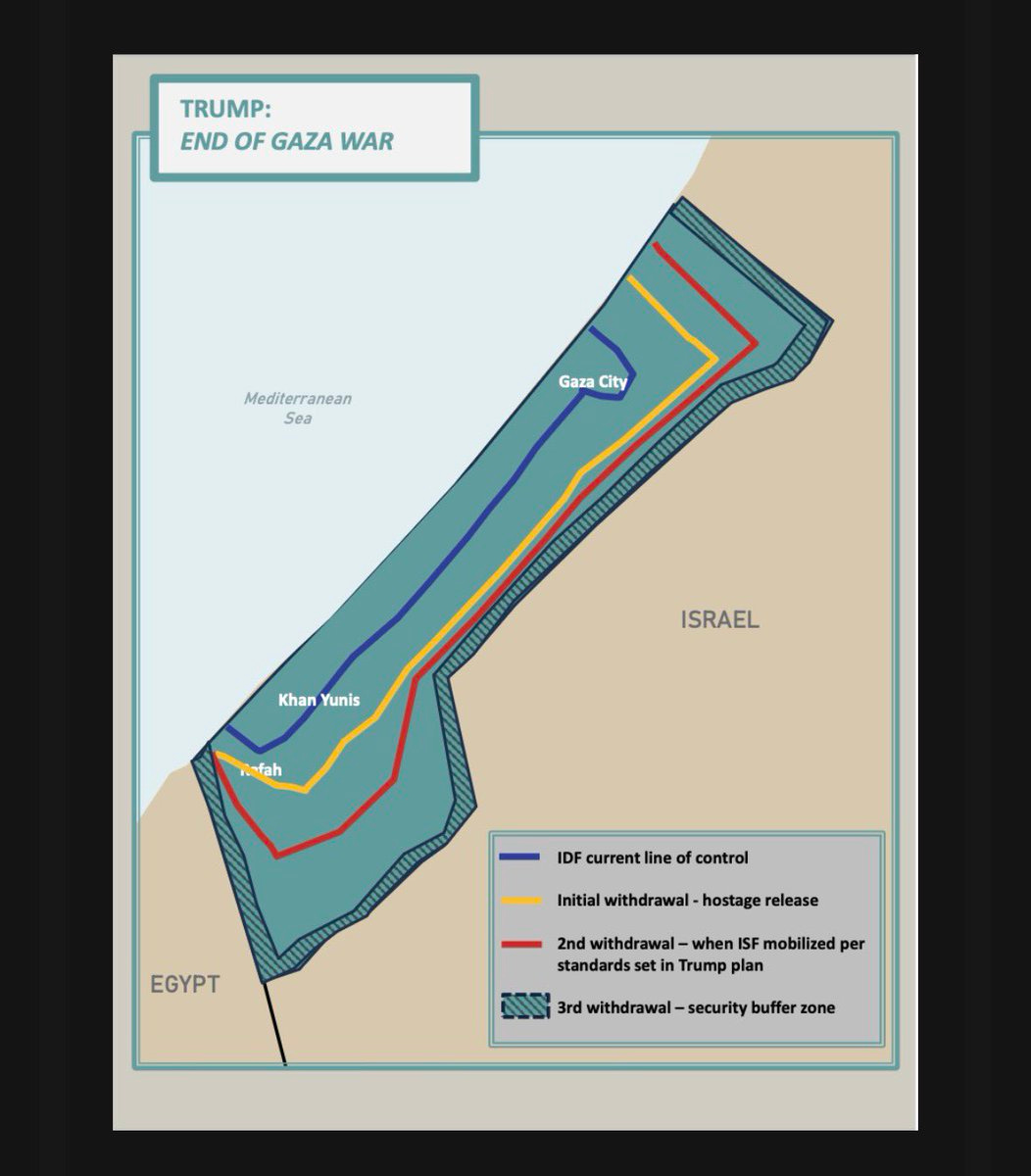
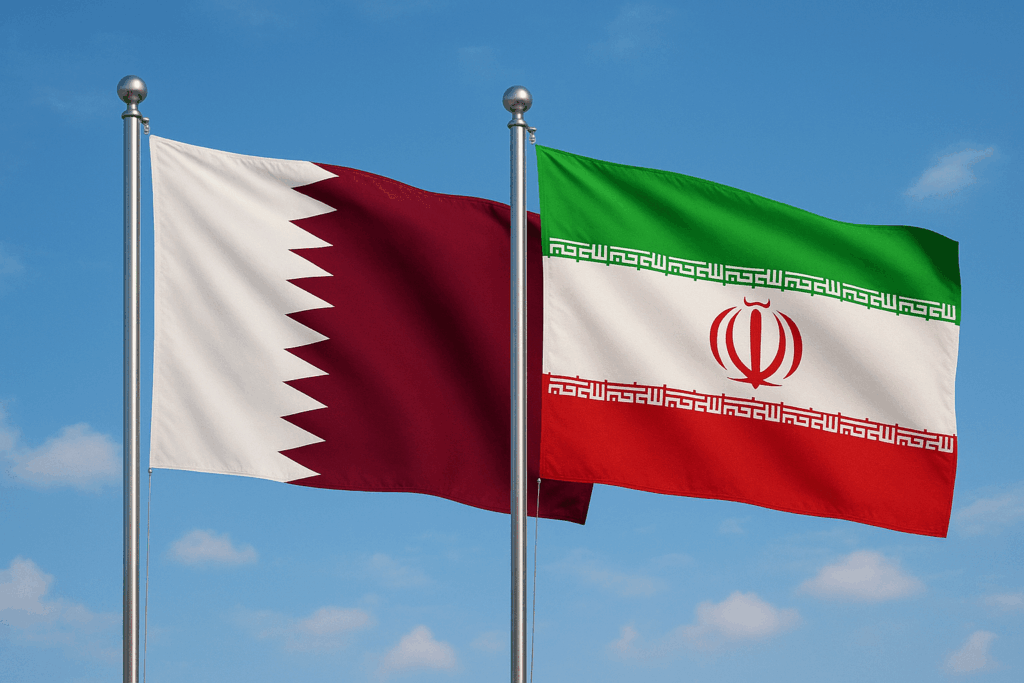
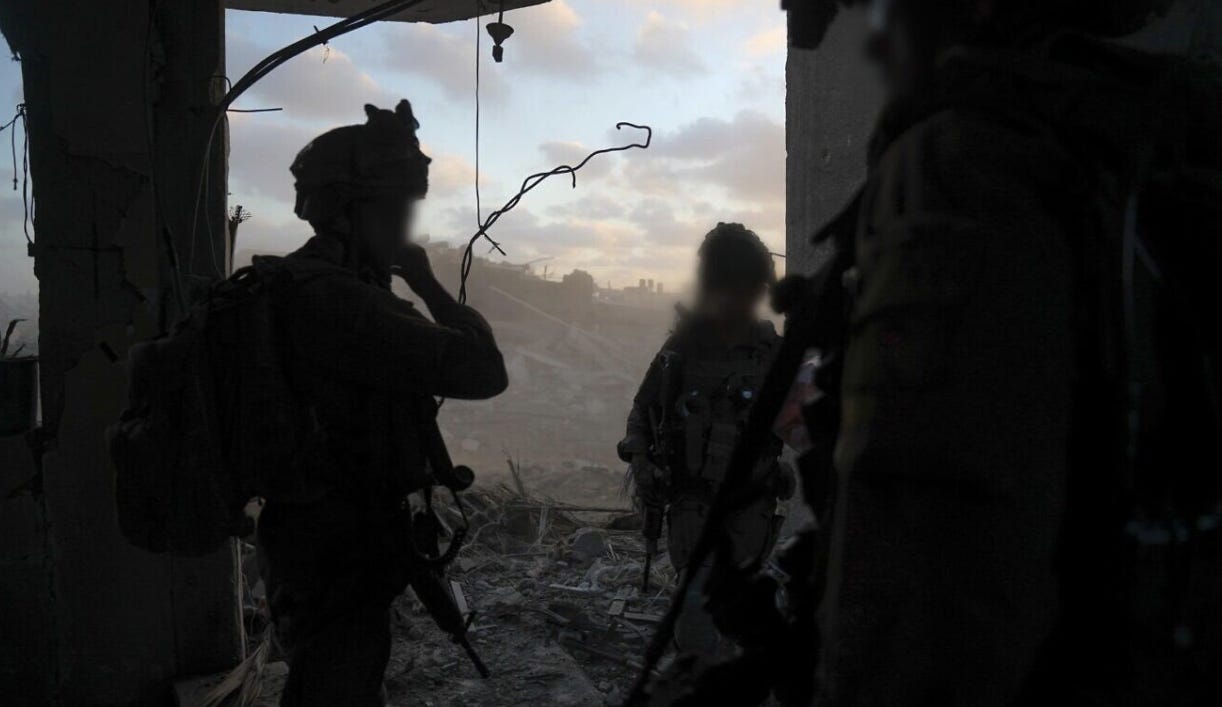
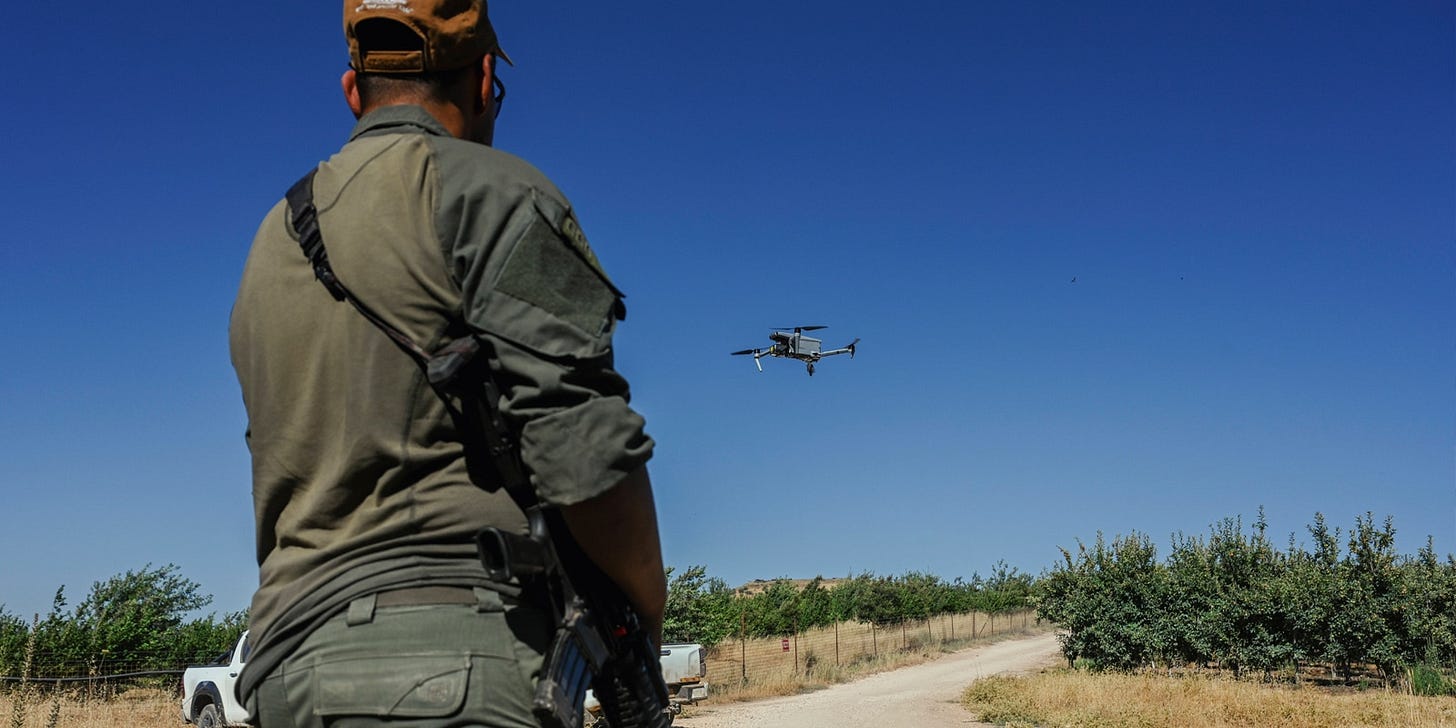


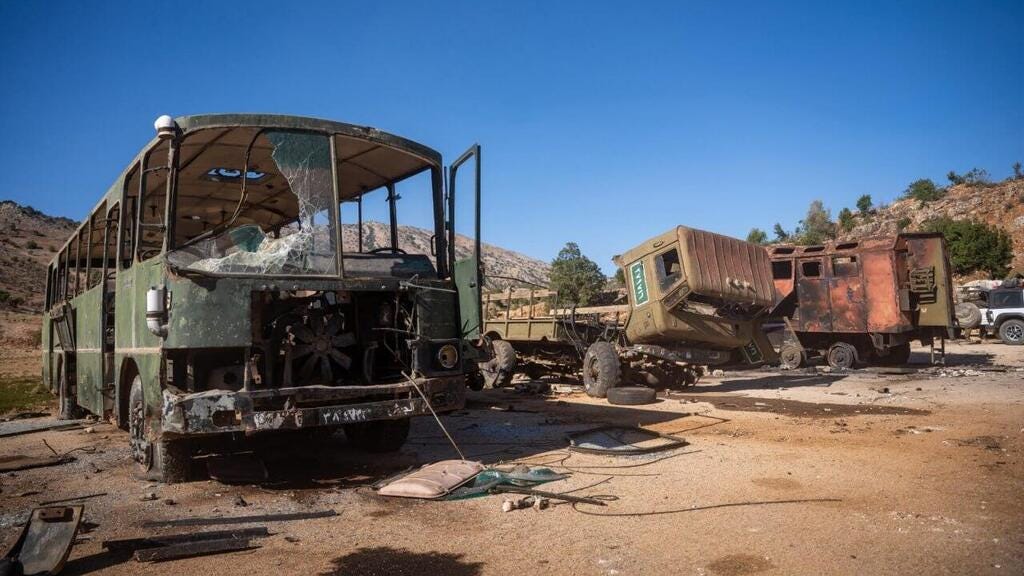
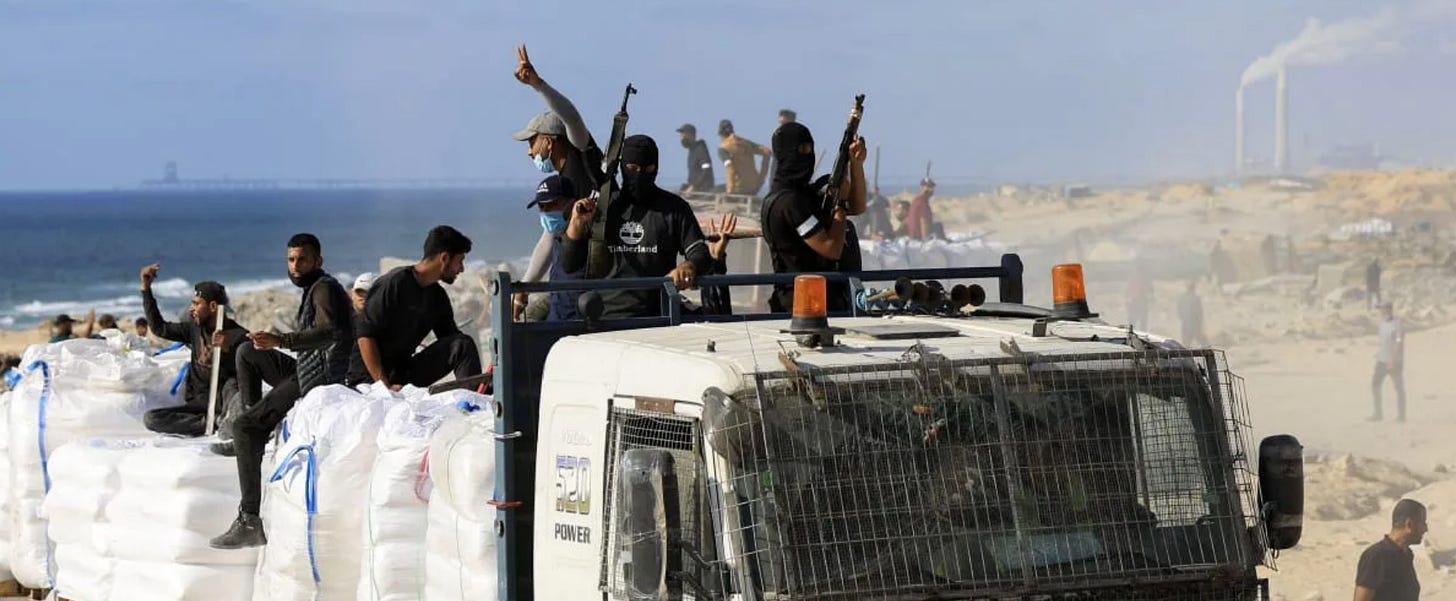
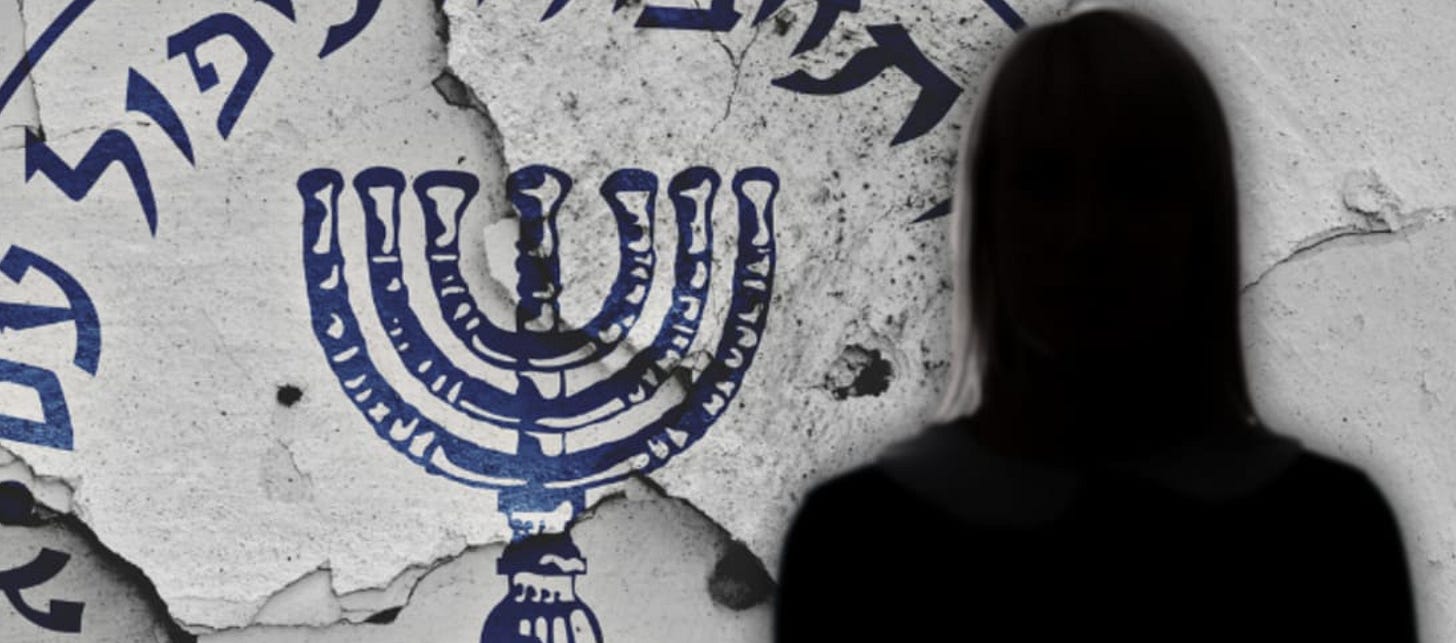


Great job exposing amoral hypocrisy of so many world leaders with their Palestinian state pronouncements. Sadly, honest and compelling advocacy has difficulty competing with the toxic effects of the billions of Qatari spend. DG